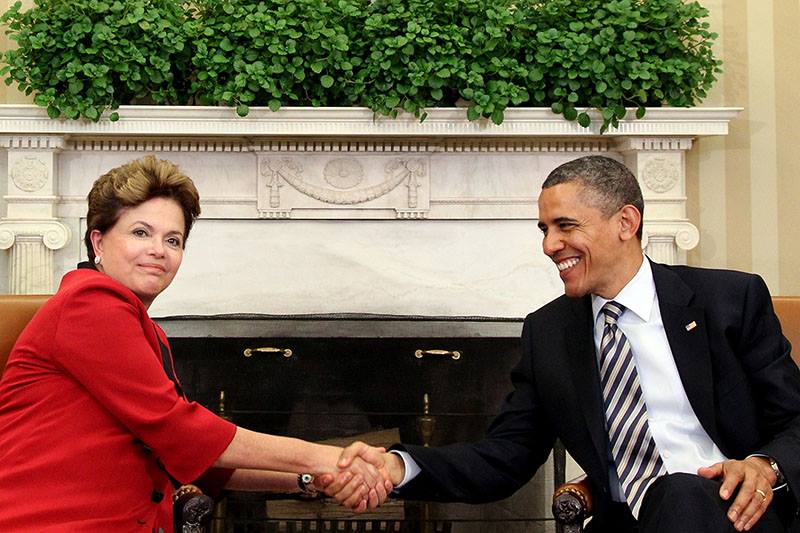The Ousting of Dilma Rousseff
Homecoming Issue
October 21, 2016
Brazil’s first female president Dilma Rousseff’s second term came to an early end on August 31st when she was impeached by the senate and stripped of her title. The country had been gripped by a power struggle between warring political sides since she came into office. The main struggle has been between the Worker’s Party, the Brazilian Democratic Movement Party, and the Brazilian Social Democracy Party. The power of the leftist Worker’s Party, which had been strong for the past thirteen years, has now come to a final end. Rousseff’s vice president, Michel Temer, has come into power in her pace and has made many promises for the future of the country.
Rousseff was originally suspended in May to face trial on charges for borrowing from state banks to cover up an impending deficit. She is accused of borrowing a sizable 11 million dollars, about 1% of the nation’s economy, to pay for social programs that made the Worker’s Party attractive to many voters. “That’s crazy,” said Luke Fahey, ’20. “When you think about it, 1% of the entire country is a huge amount of money.” However, legal experts debate whether this was an impeachable offence, and if the Brazilian government could finally target Rousseff and end an abysmal term.
On May 12, 2016, after a vote of 55 to 22, lawmakers accepted the charges and accused Rousseff of borrowing a large sum of money from state banks in order to cover up a looming deficit. While she was on trial, her place as President was taken up by Vice President Michel Temer, who has also been accused of violating campaign finance limits.
Rousseff claims the successful attempts to impeach her were a government coup. “I did not commit these crimes that I am arbitrarily and unjustly accused of,” Rousseff said during her impeachment trial, adding, “We are one step away from a real coup d’etat.” When she reached out for national support by talking to reporters about how she was innocent and being attacked, worldwide media lashed out at her for trying to ruin Brazil’s reputation. “The Brazilian economy is in such terrible shape that I don’t know if any president could survive it,” said Brian Fahey, head of West Chester Friends School. “I would be interested in seeing whether or not a new direction will help them repair the economy or make their economic problems worse in the short term.” The economy has definitely plunged in the last few years. In 2011, Brazil’s Gross Domestic Product was worth 2.615 trillion U.S. dollars. Now, in 2016, it is worth 1.775 trillion, meaning it has dropped by almost 1 trillion dollars in the last five years. The GDP is the value of all the goods and services made inside a country’s borders.
While the current president Michel Temer promises to turn this around, many suspect his claims of helping the country lack foundation. He promises to mend a pension system quickly running out of enough money to support itself. He also promises to turn the nationalist oil legislation to the private sector and cut back on public spending.
However, Temer has been vague on how he plans to actually achieve these goals. “I’m glad that Rousseff is gone, but Temer doesn’t seem to be much better,” said Courtney Thomson ’20.
Temer has also come under fire for his cabinet, which currently does not include any women or Afro-Brazilians. This lack of diversity causes the citizens of Brazil to feel uncomfortable, and makes them feel like a diversity of opinions is not represented. “I always imagined that, in the federal government, he would advance this issue,” said Eva Blay, a retired Sociology teacher from the University of São Paulo. “Instead, we have to start the fight again,” she added. “It’s a delay.” Many feel like this is a step backwards for the progressive movement of the country. While it is unquestionable that Dilma Rousseff will no longer lead the country or have a place of power, the real question is what will come next for Brazil.































